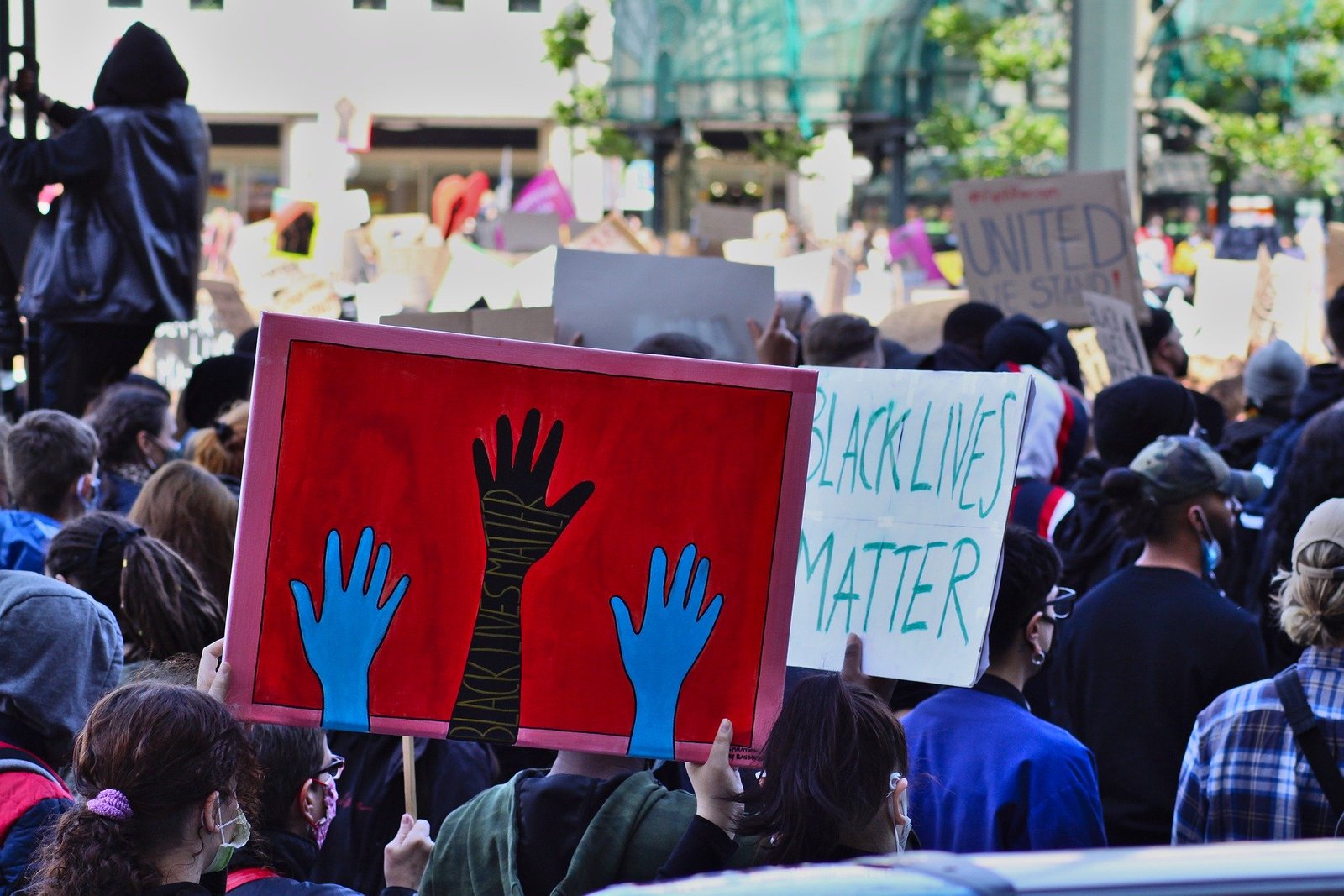The question of whether climate change is racist might seem a little odd. The reason that climate change is such an issue is due to it being a potential threat to the entire world. Pollution also tends to be indiscriminate. However, in light of the Black Lives Matter UK protest at London City Airport on Tuesday, the racial dimension of environmental issues has to be discussed.

In fairness, BLM have some of their facts correct. It is true that minority communities in the UK are more likely to be exposed to air pollution. It is also true that, globally, the impact of climate change (in the form of droughts, flooding, famine, etc.) aredisproportionately likely to have a worse impact on poorer countries, many with large black populations, which are less able to respond to and contain the problems. However, this does not mean that climate change is “racist”.
The implicit argument BLM are making is that, were the impact to fall more heavily on white people, governments, and the UK government in particular, would be doing more to combat climate change and pollution (I take it that nobody serious is arguing that climate change is an intentional tool of white supremacy). This would be a peculiar situation.
Whether or not climate change will cause more harm to particular countries, and whether or not pollution has a disproportionate impact on certain communities, costs still fall oneveryone. It is worth noting that there is a lot of evidence that pollution can be left unchecked regardless of the ethnicity of those affected, China being an instructive example.
There are more convincing and significant reasons why action on climate change has been slower than it might have been. At a domestic level, environmental policies can be quite hard to sell to the electorate. Given time preferences, people may be aware of climate change, and that it will impose costs on them personally, but be unwilling to forego cheap energy here and now. Cutting environmentally unfriendly energy subsidies is politically difficult. The lobbying power of the oil industry is also a factor.
Most importantly, the response to climate change needs to be conducted globally. If the UK reduced its carbon footprint to zero tomorrow, this would have a negligible impact on world emissions. Organising effective collective action at an inter-state level is never easy. The problem is complicated by the fact that a significant amount of the industry contributing to climate change is based in developing countries, particularly China andIndia. To simplify their position slightly, they are understandably reluctant to forgo the same kind of development that the West has already enjoyed.
It is also the case that working out exactly what the response to climate change should be is not self-evident. If all industrial activity simply stopped, we may control damage to the environment, but it would be at the cost of immeasurable human suffering. In particular, the countries that BLM (rightly) highlight as being most at risk would be plunged into even greater poverty than they already endure. Unless you embrace the misanthropy of fringe elements of the green movement, this is obviously a repugnant ‘solution’.
In the abstract, the answer is obvious. Environmentally sustainable energy needs to be developed and promoted. This is easier said than done. Simply subsidising preferred industries has perverse effects, such as investing too much in a technology with very limited potential. Fashionable ideas, such as carbon trading schemes, have proven notoriously difficult to implement and organise .
The best solution appears to be introducing a carbon tax, which would provide a competitive advantage to all sustainable industries without needing to pick winners, and would less perverse effects than regulation. Nevertheless, this has failed to gain political traction, if only because it has been caricatured as a ‘big tax on everything’, which makes it unfairly, if not unsurprisingly, unpopular. Further, given that developing countries require fewer restrictions on industry, the tax would probably have to be introduced at disproportionately higher levels in developed countries, which is something of a hard sell to their populations and governments.
Given that this is all very well documented, where has the ‘climate change is racist’ narrative come from? In short, it stems from BLM’s mission creep and deep-rooted issues with contemporary left-wing academia. Once you start to view the world through the lens of identity politics and structuralism, it becomes very difficult to recognise that the real world and its problems are much more complicated than, and cannot be reduced to, hierarchy and privilege.
In BLM’s defence, it is understandable that they have moved in this direction. Activism is absolutely necessary to combat the cruel injustices of the criminal justice system, excessive police power and immunity, and poverty in the US. It is also true that there is aracial dimension to this that ‘all lives matter’ fails to capture.
Problems emerge where this perspective is extended to become a heuristic for understanding politics, economics, and society as a whole. Asides from simply being false, this holisitic and absolutist analysis leads to some contorted positions. Protesting Pride for being racist is, at best, indicative of skewed priorities. Given that air travel has become extremely cheap, dismissing the impact of the protest at London City Airport as only affecting ‘a small elite’ is disingenuous and out of touch. Endorsing segregation can only be regressive. And calling climate change or pollution “racist” is a distorted simplification that skirts over the real issues








Article Discussion